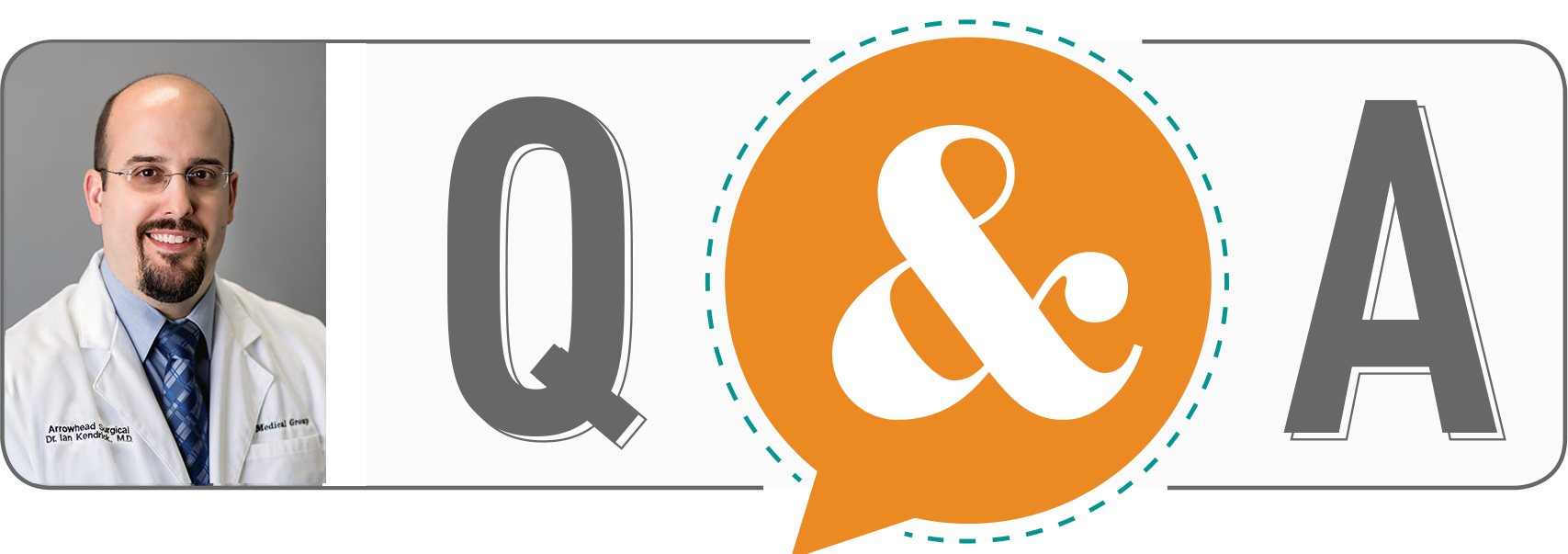
With Ian Kendrick, M.D.
Women and men of all ages can develop hernias, so it's important to know what a hernia is. We talked with Dr. Kendrick to learn the basics.
Q.
First things first: what is a hernia?
A. A hernia is when an internal organ or tissue bulges through an abnormal opening in the body, such as a hole or weakness in your abdominal wall. Hernias can occur at various parts of your body but are commonly found in the navel, the groin or anywhere you have had a surgical incision. Often the hernia creates a bulge you can see and feel. Hernias are generally painful and can sometimes damage your internal organs.
Q.
How do I know if I have a hernia?
A. Some hernias are present at birth; others develop slowly over a period of months or years. Hernias can also suddenly occur. Experiencing an unusual or painful bulge in the affected area is the most commonly reported symptom. Some patients also report discomfort in the abdomen and swelling in the groin that worsens with activity. It should be noted that you could have more subtle symptoms as well - including dull aches and pains. I can often diagnose a hernia in my clinic office, though sometimes we need a computed tomography (CT) scan to confirm.
Q.
Is there anything I can do to prevent a hernia?
A. One of the most powerful ways you can lower your risk is simply maintaining a healthy weight. Being overweight adds pressure to your abdominal area, which can create a hernia or make an existing one worse. Also you can stop smoking as chronic coughing from smoking increases your abdominal pressure. However, I believe much of it has to do with genetics, which is something you just cannot change.
Q.
Can you treat my hernia?
A. I specialize in repairing hernias surgically. Hernia surgery is often relatively low risk. For many patients, it can be performed laparoscopically, which typically means you recover faster and get back to your life sooner. Many hernias require the placement of mesh in order to reinforce the weakness in the abdominal wall, which lessons the chance for the hernia to come back.
Patient results may vary. Consult your doctor about the benefits and risks of any surgical procedure or treatment.
ASSOCIATED CARE
ASSOCIATED PROVIDERS
ASSOCIATED LOCATIONS
General Surgery
Uinta Medical Plaza
196 Arrowhead Drive
Suite 1
Evanston, WY 82930